Essential to any Japanese gathering is the spirit of omotenashi – a sense of hospitality rooted in genuine empathy for one’s guests. Gratitude and appreciation are at the heart of omotenashi – much like tidying.
“Omotenashi is used to describe how you welcome guests, but I extend that philosophy to my house, my belongings, and everything that supports and protects me,” says Marie. “When I tidy, I thank each item and think about where it would be most comfortable. Hosting is the same thing.”
To learn more about the elements of a Japanese-inspired gathering, we went behind the scenes with Marie and Naoko Takei Moore – cookbook author and owner of Toiro, a traditional Japanese cookware store in Los Angeles – as they prepared an intimate dinner party for family and friends.
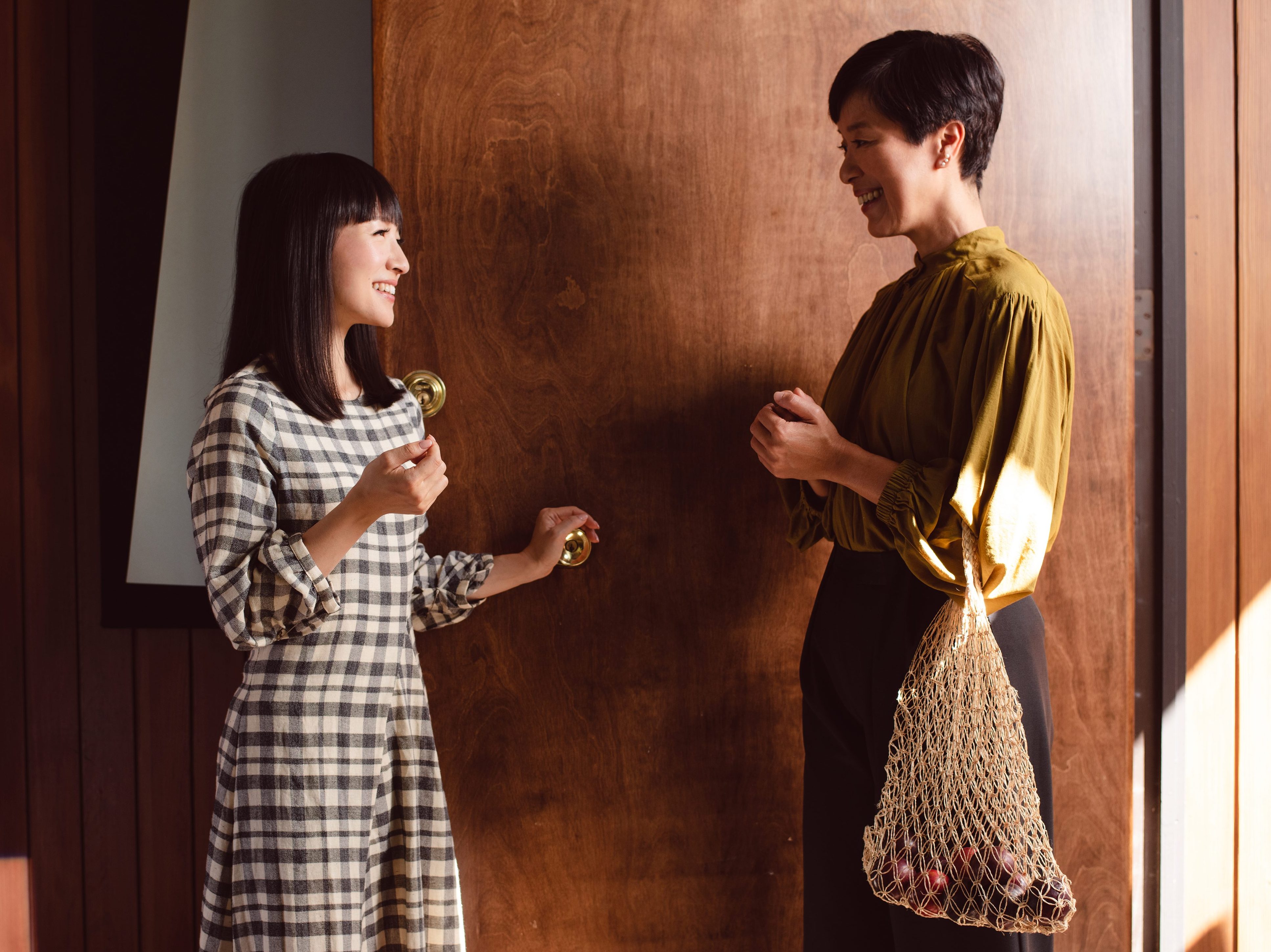
The Art of Omotenashi
Omotenashi is a series of small gestures that begins before your guests arrive and extends throughout the evening. In Japan, a host splashes water on the path leading to their front door as a welcoming gesture. “When people gather, it’s important to purify the space,” says Marie. “I burn incense and tidy up the entryway. In Japan, I would leave a cone of purifying salt by the door so guests knew the house had been cleansed.”
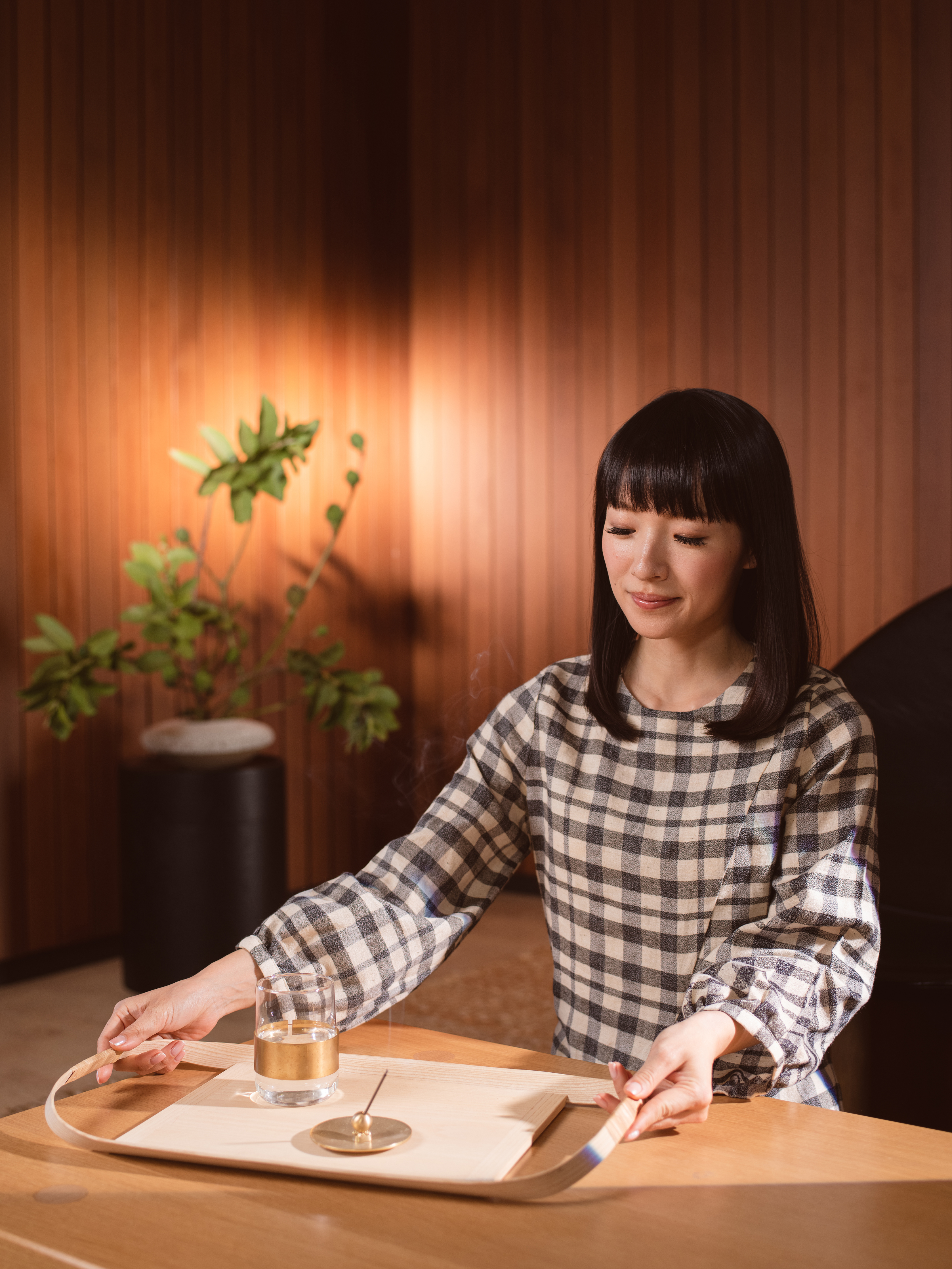
Attention to detail – from the scent in the air to the choice of the chopstick rest – creates a relaxed environment in which guests can feel truly at home. “The goal is to make the evening effortless – for me and my guests,” explains Naoko.
Preparation and Participation
Effortlessness during the dinner itself requires preparation beforehand. Naoko, a Cordon Bleu-trained chef, likes to say that cooking – and hosting – is 90% prep and 10% execution. “Preparing well is crucial,” she says. “I recommend making a timeline and working backwards from when you want to begin eating.”
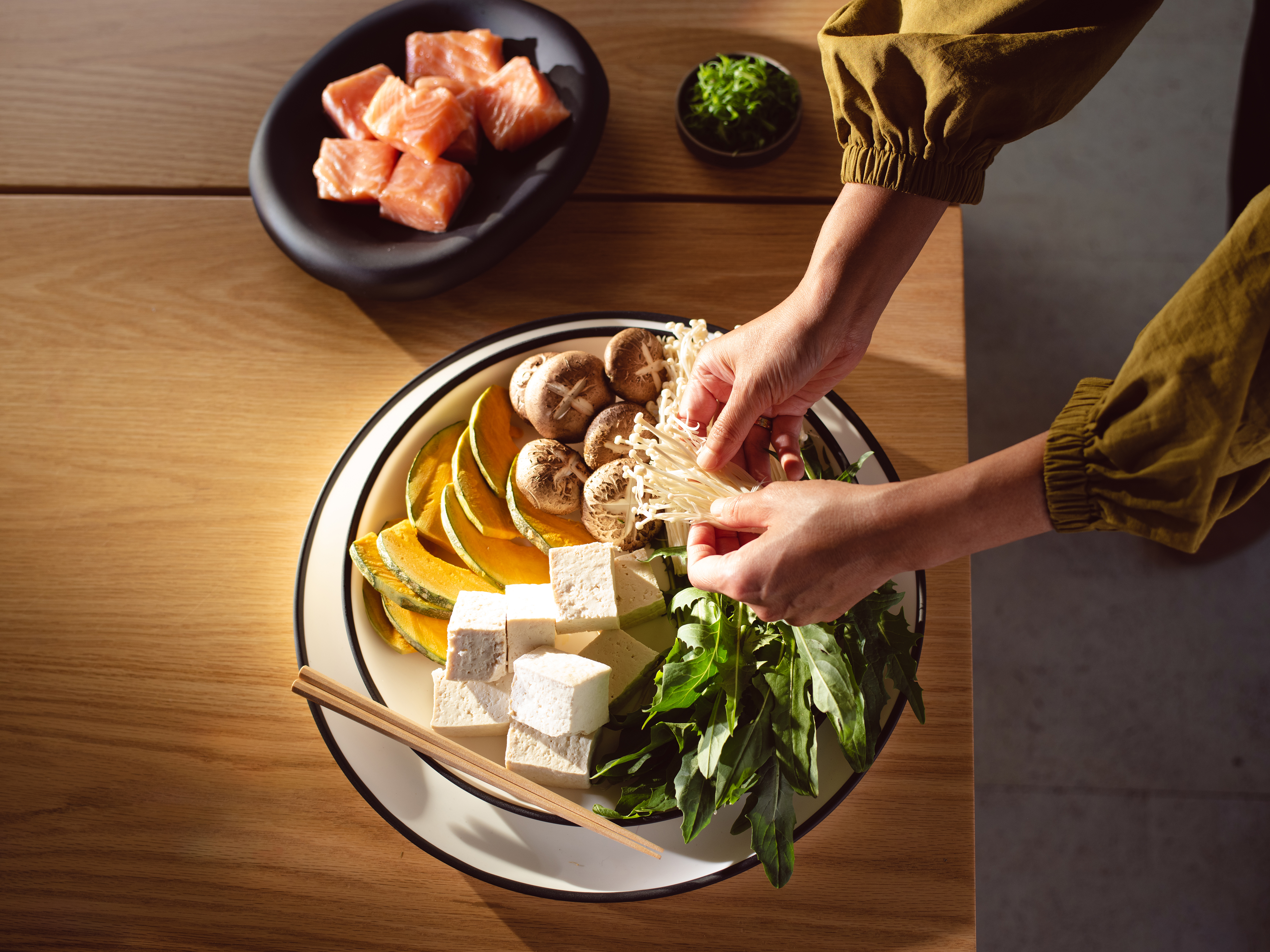
Not all of the prep, however, needs to be done ahead of time: Japanese hosts typically invite their guests to participate – from chopping vegetables to setting the table. “In Japan, you are really part of the dinner party,” says Naoko. “That’s the spirit of omotenashi.”
Cooking With Donabe
Donabe is a style of traditional Japanese earthen cookware – the Kanji characters do and nabe mean clay and pot, respectively – that is so ubiquitous in Japan that Naoko calls it the country’s “national cookware.” Donabe are the star at Toiro and the focus of Naoko’s cookbook, which includes traditional Japanese recipes – alongside culinary riffs inspired by her time in Los Angeles – that can all be made in a donabe.
Both Naoko and Marie cook with donabe every day – which is actually how they met! Newly living in the U.S., Marie had ordered a donabe from Japan that arrived broken; she visited Naoko’s store for a replacement and the two became friends.
One of Naoko’s go-to dishes for entertaining is shabu shabu – a Japanese hot pot – which is cooked on the table in a donabe. Emblematic of Japanese home cooking, it’s a meal that requires active participation – one of the reasons Naoko loves it. “When guests gather around a donabe, they experience a shared joy – especially that ‘wow’ moment when the lid comes off and everyone sees what’s inside.”
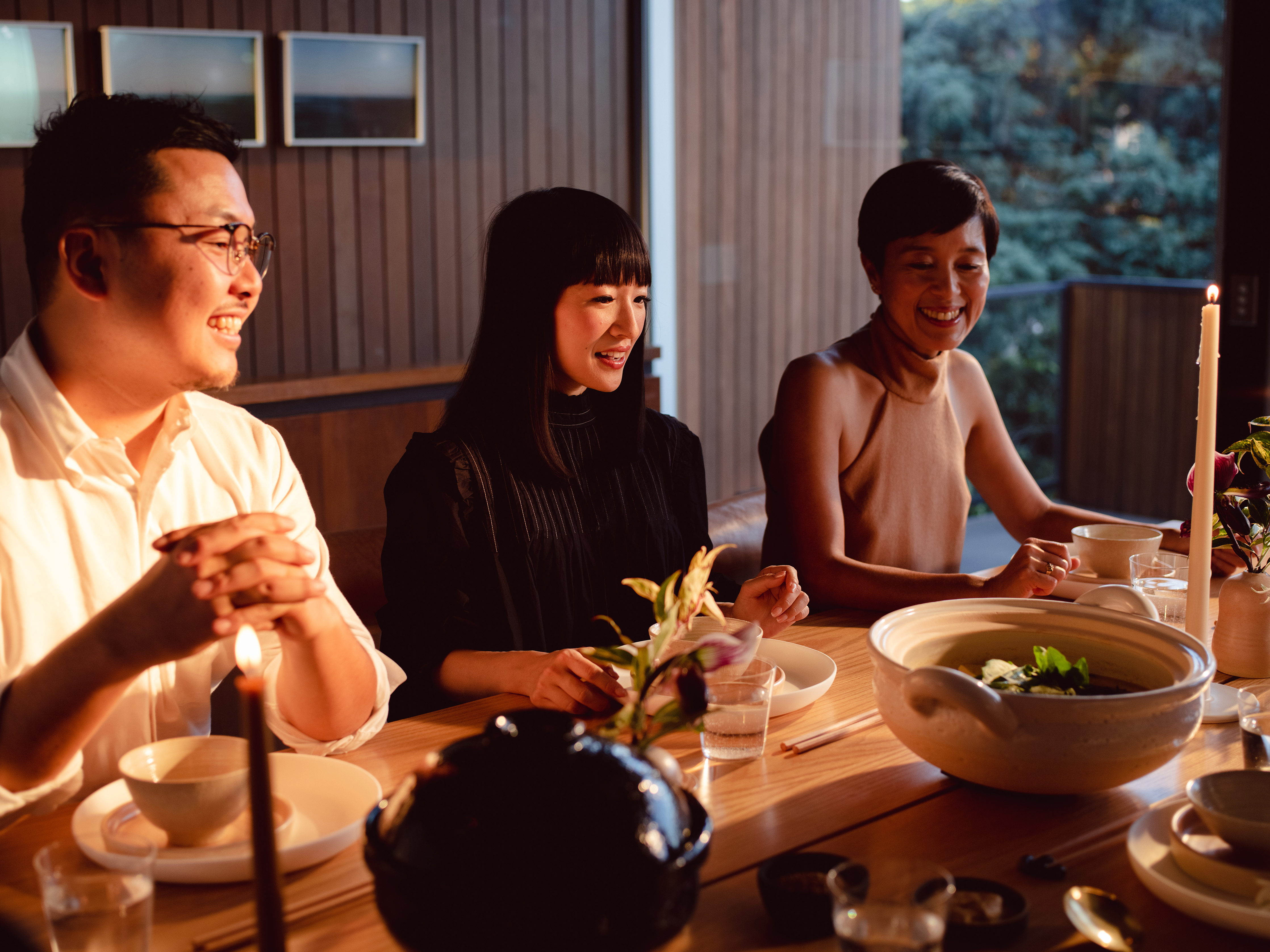
Celebrate the Season
Incorporating seasonal elements into a gathering is quintessentially Japanese. Marie recalls a dinner party she threw with a friend during cherry blossom season: “We used pink dinnerware, sprinkled the table with petals and served sakura rice.” In autumn, dinners are planned around the season’s rich flavors, like chestnut rice and grilled sanma – a fish that peaks that time of year – and hosts often decorate their tables, as Marie does, with fallen leaves.
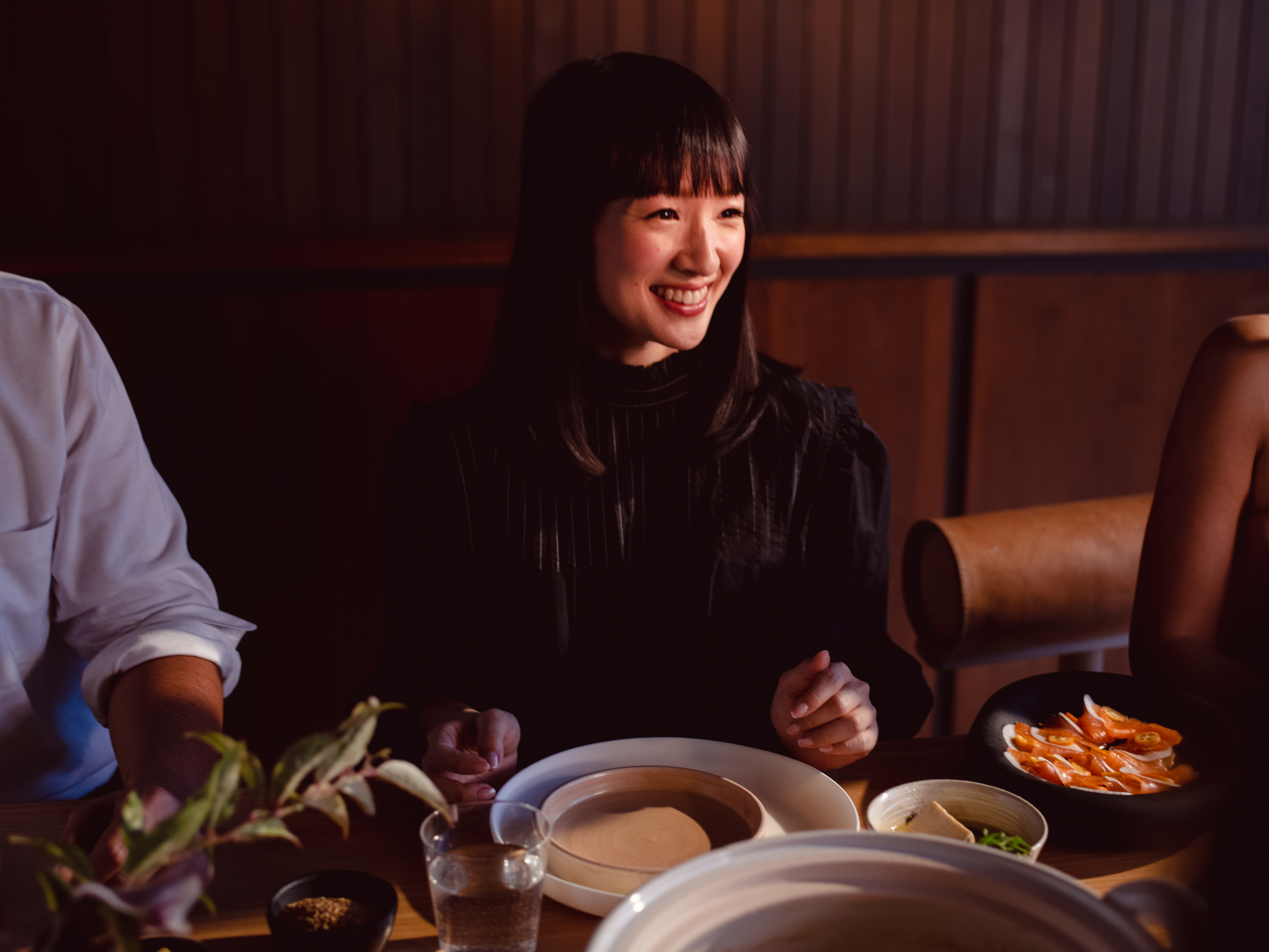
No matter the season, a sense of gratitude remains central to a Japansese-inspired meal. “One of the reasons I think cooking with donabe is so special is because it’s from the earth. It’s a natural connection,” says Naoko. “Plus,” she adds, “a donabe makes life easier and more fun!”







